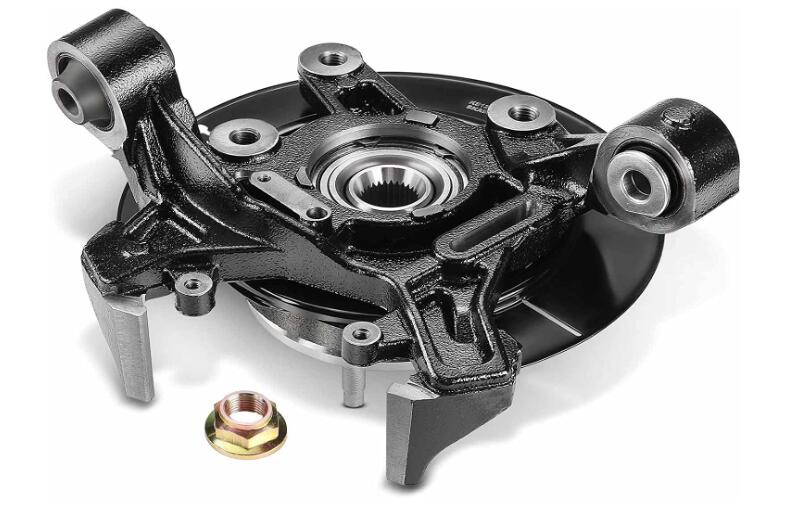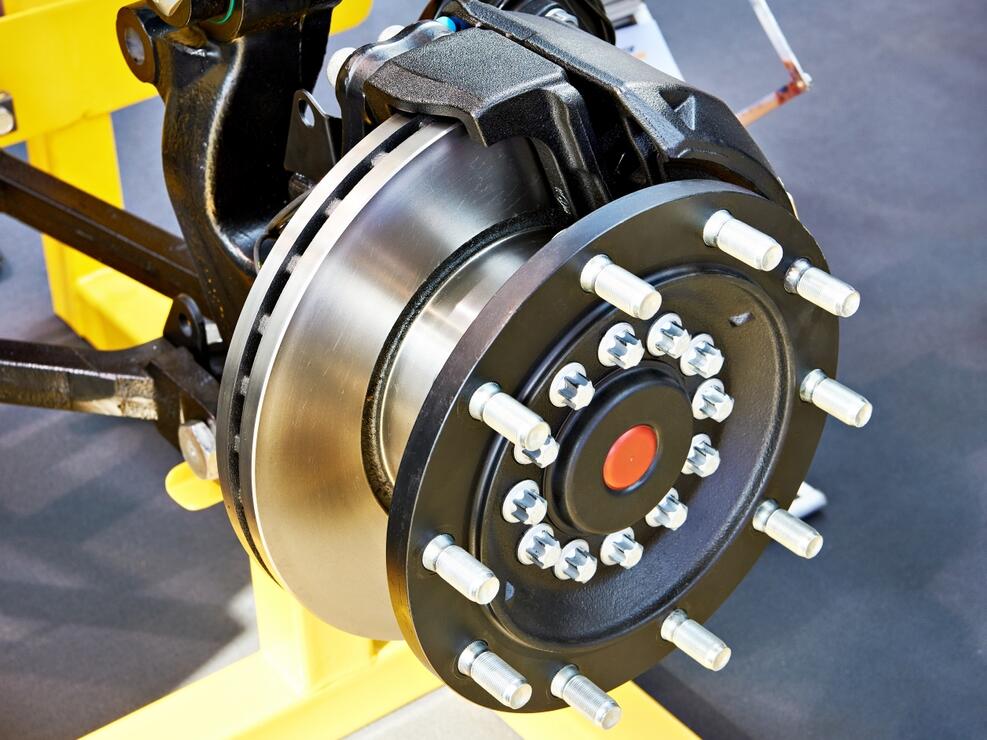Introduction
Various certifications and standards govern the wheel hub and bearing assembly industry to ensure these critical automotive components’ quality, safety, and reliability.
This article will discuss the industry’s most common certifications and standards, their importance, and how they can help auto professionals make informed decisions when selecting wheel hub and bearing assembly manufacturers.
ISO/TS 16949 and IATF 16949: Quality Management Systems in the Automotive Industry
ISO/TS 16949 is an international standard for quality management systems in the automotive industry.
It is based on ISO 9001 and provides additional requirements for designing, developing, producing, and delivering automotive components.
Manufacturers with ISO/TS 16949 certification demonstrate a commitment to quality and continuous improvement in their production processes.
IATF 16949 is the latest revision of ISO/TS 16949, overseen by the International Automotive Task Force (IATF).
This standard emphasizes continuous improvement, defect prevention, and waste reduction in the automotive supply chain.
Manufacturers with IATF 16949 certification are committed to providing high-quality automotive components that meet stringent industry requirements.
ISO 9001: A Foundation for Quality Management Systems
ISO 9001 is a globally recognized standard for quality management systems applicable to various industries, including automotive component manufacturing.
It provides a framework for organizations to demonstrate their commitment to providing high-quality products and services that meet customer expectations.
Manufacturers with ISO 9001 certification have established processes and procedures to ensure consistent product quality.
For wheel hub and bearing assembly manufacturers, ISO 9001 certification strongly indicates their commitment to quality and customer satisfaction.
It is often a prerequisite for obtaining more specific certifications and approvals, such as ISO/TS 16949 or IATF 16949.
TÜV Rheinland: Ensuring Safety, Quality, and Performance
TÜV Rheinland is a renowned international certification body that provides testing, inspection, and certification services for various industries, including automotive components.
Manufacturers with TÜV Rheinland certification have undergone rigorous testing and inspection to ensure their products meet strict safety, quality, and performance standards.
In the wheel hub and bearing assembly industry, TÜV Rheinland certification can assure auto professionals that the manufacturer’s products have been thoroughly tested and are of high quality.
This can be particularly important when evaluating aftermarket wheel hub and bearing assemblies, where quality and performance can vary significantly between manufacturers.
SAE International Standards: Setting the Benchmark for Automotive Components
The Society of Automotive Engineers (SAE) International sets standards for various automotive components, including wheel hubs and bearing assemblies.
These standards define performance requirements, testing procedures, and material specifications, helping to ensure consistent quality and reliability across the industry.
Auto professionals should be familiar with the relevant SAE standards for the wheel hub and bearing assemblies and use them as benchmarks when evaluating manufacturers.
Compliance with SAE standards can provide confidence that the manufacturer’s products meet the performance and quality expectations of the automotive industry.
CE Marking: Meeting European Union Requirements
The CE mark indicates that a product meets the European Union’s health, safety, and environmental protection standards.
While not specific to the wheel hub and bearing assemblies, the CE marking is a general requirement for automotive components sold within the EU.
Manufacturers with CE-marked wheel hubs and bearing assemblies demonstrate their compliance with EU regulations, which can be important for auto professionals targeting the European market.
The CE marking ensures the product meets the necessary safety and environmental standards, reducing potential legal and regulatory risks for businesses selling these components in Europe.
ASTM International Standards: Comprehensive Guidelines for Materials, Products, and Services
ASTM International, formerly the American Society for Testing and Materials, is a globally recognized organization that develops and publishes technical standards for various materials, products, and services, including automotive components.
ASTM standards can guide material specifications, testing methods, and quality requirements for the wheel hubs and bearing assemblies.
Auto professionals should be familiar with relevant ASTM standards for the wheel hub and bearing assemblies, as they can help ensure consistent quality and reliability across manufacturers.
Compliance with ASTM standards can provide added confidence in the manufacturer’s commitment to producing high-quality components.
ABEC Grades: Precision and Tolerance Levels for Ball Bearings
Although ABEC grades are primarily used for precision ball bearings, they can sometimes be relevant to the wheel hub and bearing assemblies that incorporate them.
ABEC grades (1, 3, 5, 7, and 9) indicate the tolerance and precision levels of the bearings, with higher grades representing tighter tolerances and greater precision.
When evaluating wheel hub and bearing assembly manufacturers that use ball bearings, auto professionals should consider the ABEC grade of the bearings used.
Higher ABEC grades indicate better precision and performance, potentially resulting in longer-lasting and the more reliable wheel hub and bearing assemblies.
OEM Approvals: Meeting Vehicle Manufacturer Requirements
Some wheel hub and bearing assembly manufacturers may have OEM approvals from specific vehicle manufacturers.
These approvals indicate that the manufacturer’s products meet the OEM’s quality and performance requirements and are authorized for replacement parts in the vehicle manufacturer’s service network.
Auto professionals should consider OEM approvals when evaluating wheel hub and bearing assembly manufacturers.
Manufacturers with OEM approvals have demonstrated their ability to meet strict quality and performance standards, providing additional assurance of the reliability and compatibility of their products.
Local and Regional Standards: Compliance in Target Markets
Depending on the target market, wheel hub and bearing assembly manufacturers may need to comply with local or regional standards and regulations.
These standards can vary depending on the country or region, so verifying the specific requirements for each market where the products will be sold is essential.
For example, some countries may have additional safety or environmental regulations that automotive components must meet.
Auto professionals should research and familiarize themselves with these local and regional standards and ensure that the manufacturers they work with are compliant.
This not only helps to ensure the quality and safety of the products but also reduces potential legal and regulatory risks for businesses operating in these markets.
Third-Party Testing and Verification: An Extra Layer of Confidence
In addition to certifications and standards, auto professionals can look for manufacturers that perform third-party testing and verify their wheel hub and bearing assemblies.
Independent testing organizations can provide unbiased assessments of a product’s quality, performance, and compliance with industry standards.
Manufacturers that invest in third-party testing and verification demonstrate a commitment to transparency and accountability, which can instill greater confidence in their products.
Auto professionals should consider working with manufacturers that have their products tested and verified by reputable organizations.
This can ensure that the wheel hub and bearing assemblies meet or exceed industry standards.
Environmental Certifications: Emphasizing Sustainability and Responsibility
Environmental responsibility and sustainability have become increasingly important in the automotive industry.
As a result, auto professionals should consider the environmental certifications held by wheel hub and bearing assembly manufacturers.
One such certification is ISO 14001, which focuses on environmental management systems.
Manufacturers with ISO 14001 certification have demonstrated their commitment to minimizing the environmental impact of their operations, including reducing waste and pollution, conserving resources, and continuously improving their environmental performance.
By partnering with manufacturers prioritizing environmental responsibility and sustainability, auto professionals can contribute to a greener automotive industry while appealing to environmentally conscious customers.
Customer Service and Technical Support: Ensuring Ongoing Satisfaction
Certifications and standards are essential when selecting wheel hub and bearing assembly manufacturers, but evaluating the manufacturer’s customer service and technical support capabilities is crucial.
A manufacturer with a strong track record of providing excellent customer service and technical support can help ensure ongoing satisfaction for auto professionals and their customers.
Look for manufacturers that offer comprehensive customer support services, including product training, installation guidance, troubleshooting assistance, and warranty support.
A responsive and proactive manufacturer addressing customer needs and concerns can help auto professionals build long-lasting and successful partnerships.
Conclusion
Auto professionals can make informed decisions when selecting wheel hub and bearing assembly manufacturers by considering various factors, including industry certifications, standards, third-party testing, local and regional compliance, environmental responsibility, and customer service capabilities.
Compliance with these certifications, standards, and additional factors strongly indicates a manufacturer’s commitment to quality, safety, customer satisfaction, and environmental responsibility, ultimately contributing to the success and reputation of your business.
By partnering with manufacturers that share your commitment to excellence, you can provide your customers with high-quality, reliable wheel hubs and bearing assemblies that meet or exceed their expectations.




